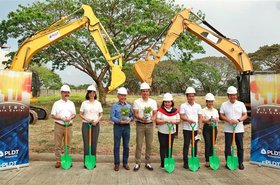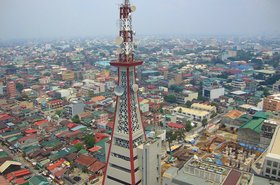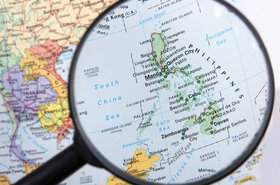The new VITRO data center will be anchored on the best sustainable practices and energy efficiency for the design of the first-of-its-kind data center in the Philippines.
A global company of specialist building services and ICT engineers, RED has led the drive towards the zero-carbon goal for over a decade.
RED is a company under ENGIE, a global energy and services group operating in the three key business sectors of low-carbon electricity generation (with particular emphasis on natural gas and renewables), energy infrastructures and customer solutions.
Recognized with 28 data center industry awards, their projects include the successful delivery of over 800 data centers in over 40 countries.
“We are excited for this collaboration as it advances the PLDT Group’s drive to incorporate renewable energy and best sustainable practices in the operations of our facilities moving forward,” said PLDT, Smart president and CEO Alfredo S. Panlilio.
“As the pioneer and most experienced data center operator in the Philippines, this partnership further signifies our commitment to constantly improve operational excellence, global competitiveness and ensure sustainable practices within our core,” he added.
“RED is delighted to be partnering with the Philippines premier telecoms provider PLDT and ePLDT on this exciting new data center project for the region to build the country’s first world class hyperscale data center to service global customers coming to the Philippines,” said RED Engineering regional director, Asia Pacific, Martin Webb.
“RED brings an abundance of technical knowledge and expertise to this project, having successfully undertaken more than 1,000 data center projects globally.
“RED strives to deliver projects at the highest level of quality, and with sustainability at the core of our approach this allows us to push forward with achieving crucially important decarbonization goals.”
To be built in a five-hectare PLDT property in Laguna, the latest, state-of-the-art hyperscale facility will be designed based on LEED standards implementing global-class sustainability practices in design, supply, and building operations.
VITRO will continue to secure globally recognized certifications that attest to its sustainable practices and operations such as ISO 14001 and 50001 and LEED Certifications.
While green energy supply is slowly gaining traction with the availability in some parts of the country, VITRO plans to secure its hyperscale power requirements through both renewable energy purchase from the grid, and harvesting off-grid green energy sources such as solar, wind, and geothermal.
Additionally, VITRO Sta. Rosa aims to use state-of-the-art cooling technology, hot and cold aisle containment, reducing power loss using high efficiency UPS systems, and construction materials that help maintain the ambient temperature within the building.
“For our biggest data center investment to date and as a testament to our sustainability pledge as a group, we have partnered with a renowned name in the field of green infrastructure design to ensure that our newest and biggest hyperscale data center site will be designed and built with sustainability as its foundation,” said Jojo G. Gendrano, FVP and head of Enterprise Business Groups at PLDT and Smart.
VITRO’s sustainability goals are part of the bigger sustainability thrust of the PLDT Group that aims to build an ecosystem of solutions and services that contribute to a greener future.
The PLDT Group has identified energy efficiency as one of the key areas that will ensure sustainable operations in its delivery of its products and services, and has started to adopt initiatives that aim to reduce its energy consumption.
Together with its subsidiaries, Smart and ePLDT, PLDT reinforces its commitment to promote and actively ensure responsible energy use in compliance with Republic Act 11285 or the Energy Efficiency Conservation Act (EECA).
The push for energy efficiency is aligned with the group’s commitment to helping the Philippines attain the UN’s Sustainable Development Goals, particularly SDG #13: Climate Action and SDG #7: Clean and Affordable Energy.
More from PLDT
-

PLDT breaks ground on 100MW facility outside Manila
Company breaks ground on 11th facility in the Philippines
-

PLDT cools on plans to sell data center unit amid tower sale
Telco raising more than $950m from tower sale, hopes to make data center unit a success
-

Sponsored Why hyperscalers are turning to the Philippines
With 80 million Internet users, the Philippines has doubled its Internet economy with 93 percent year-on-year growth over the last year
